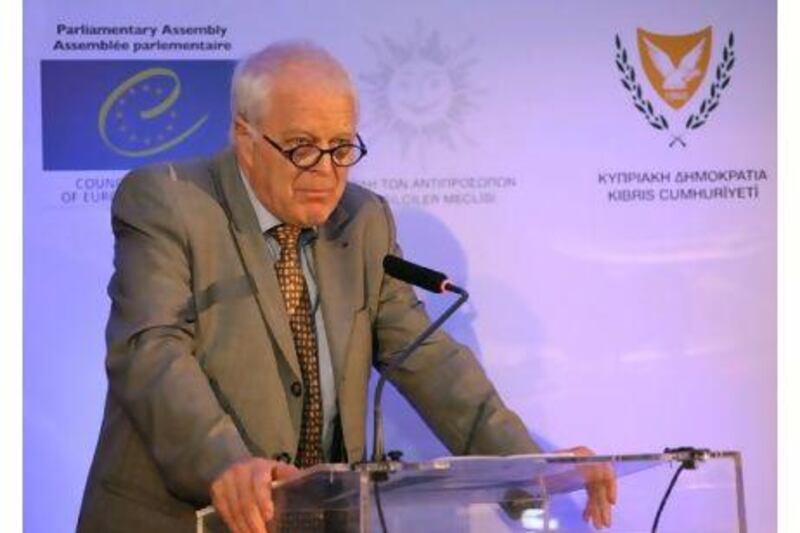ROTTERDAM // Europe's human rights situation is getting worse, rather than better, according to the Council of Europe's parting commissioner for human rights, Thomas Hammarberg.
"If one is forced to summarise, the trend probably is going down rather than up with respect to human rights, he said earlier this month.
Mr Hammarberg, whose six-year term expires in April, issued his last report, full of dire warnings, in January.
He said there were two clear trends that had contributed to a worsening of the situation, at least in Europe, and especially as the economic crisis took its toll.
"The consequences of the economic crisis and the xenophobic trend, extremist tendencies in Europe" have a impact on the rights of migrants, he said. But he noted that another downwards trend went back at least to the attacks of September 11 in the US, that also affected Europe.
Human rights suffered as a result of "the response to these terrorist attacks and the hysteria that spread around and the very close cooperation that developed between the security agencies combined with the lack of democratic control of these bodies," he said.
The Council of Europe, unlike the European Union, is a non-binding body. But its European Court of Human Rights in Strasbourg is one of the main organisations for safeguarding the values set out in the European Convention on Human Rights and the judges wield great influence, especially in the EU. Even that role is being eroded, Mr Hammarberg warned.
"In some cases they are respected but too often the implementation of their rulings doesn't happen at all or very, very slowly, by the governments. There is a mixed record when it comes to respect for the court," he said.
The same trend can be seen in Europe's response to other bodies that are meant to protect the rights of vulnerable groups, such as refugees, said Mr Hammarberg. He said that the EU used to strictly adhere to the guidelines of the United Nations' High Commission for Refugees (UNHCR), but that is now falling by the wayside.
"Before, when the UNHCR issued advice and assessments, governments in Europe tended to listen and adjust their policies to that. They don't any longer. The authority of the UNHCR in Europe has gone down because their advice has not been opportune with the governments."
The treatment of refugees, migrants and other vulnerable groups is one of the crucial areas of concern, said Mr Hammarberg. "This is one of the serious human-rights issues in Europe today," he said. "The governments and the European Union are closing the borders with fairly drastic measures and we have a general atmosphere of not welcoming people from the outside despite the fact that Europe is quickly aging and generally needs more people to come to balance our aging problem."
Governments and the EU do have the right to set immigration policy, Mr Hammarberg said, but there are some minimal international standards that they should adhere to. The attempts to thwart immigration can have lethal consequences, Mr Hammarberg said. "Now the figure for 2011 of people who drowned in the Mediterranean is 1,500 and of course it is actually much higher than that. These are people who, in many cases had good grounds to flee, in desperate situations. And in Europe we have had very little compassion for them," he said.
In many cases Europe has been actively involved in making the situation worse, said Mr Hammarberg. In particular, the EU response has been hypocritical regarding the Arab Spring uprisings in North Africa.
"[Muammar] Qaddafi was given a lot of money to prevent people from coming to Europe and even to turn them back. He was actually acting and paid as a policeman and that of course broke down with the government in Libya. And now what are the Europeans doing? They are pressuring the new government to agree to the same policies, and in Tunisia as well. This is not a proud moment when it comes to humanitarian reflections in the European countries, it is very sad."
Follow
The National
on
[ @TheNationalUAE ]
& Ferry Biedermann on
[ @ferrybiedermann ]






